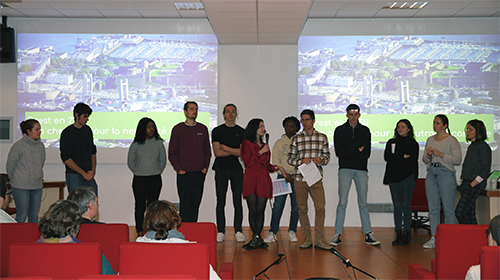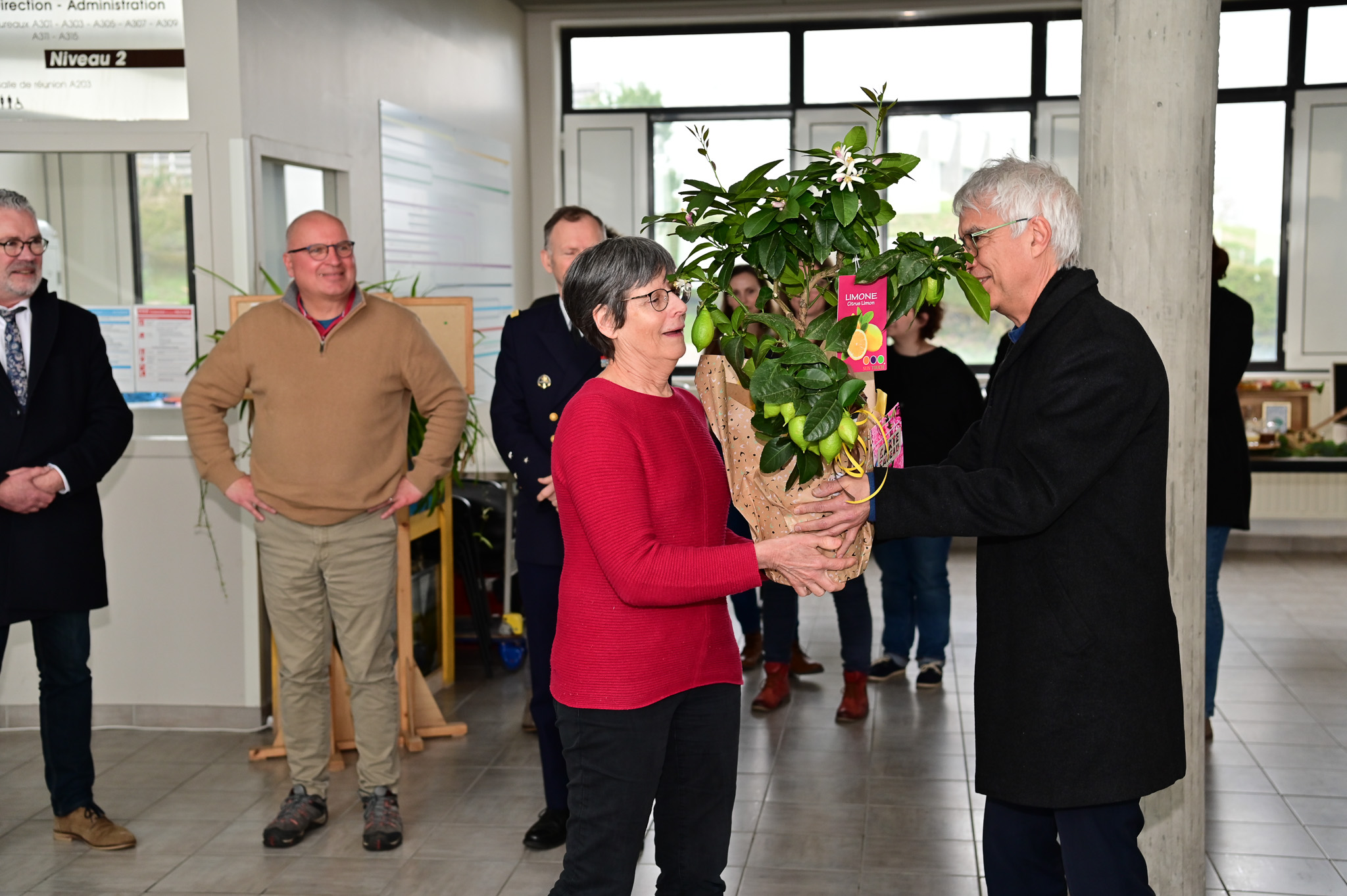ISblue, the University School for Interdisciplinary Research enters phase 2
- 2018-2028. ISblue is therefore halfway through its term. The aim of this structuring project is to develop innovative research and training subjects in marine sciences and technologies, and to strengthen their positioning internationally and in relation to the socio-economic world. After 5 years at the head of ISblue, Anne-Marie Tréguier, Director of Research at the CNRS, is handing over to Christophe Claramunt, University Professor at the École navale. This is your chance to see him present the challenges of the next five years. A collaborative vision with our blue planet at its heart.
ISblue, a collaborative, cross-sector project
"It's the main research and training cluster in marine sciences and technologies on a national scale, says Christophe. We're also adding a socio-economic component to strengthen the career prospects of our masters students".
Engineering schools (Ecole Navale, ENIB, ENSTA Bretagne and IMT Atlantique), universities (UBO and UBS) and research organisations (CNRS, Ifremer and IRD) make up the ISblue consortium. This is a fine representation of science and higher education in the Campus mondial de la mer community.
The local expertise is also reflected through the composition of the management and operational team: marine sciences and technologies, bringing together higher education and marine research resources. Initially in charge of the HUB (see later in the article) within the governance team, and therefore immersed in ISblue from the outset, Christophe will become the new ISblue Director.
ISblue, developing new research themes
Here are two examples of themes that are emblematic of the 1st phase, demonstrating interdisciplinarity:
- OMEGA: what are the effects of the decline in the availability of omega 3 on the world's populations of small pelagic fish and on human populations?
- SEALEX: what are the impacts of climate change on coastal human populations? A study of social adaptability and resilience, based on ecosystem data collected from the beginning of the Holocene to the present day, in coastal areas of the North Atlantic.
All projects: https://isblue.fr/la-recherche/projets-de-recherche/
ISblue, enabling students from different institutions to get to know each other
One of the successes of phase 1 of ISblue is the introduction of inter-semesters. Integrated into the Masters programme, these encourage exchanges between students from different institutions and different courses, "so that the cultures of universities and engineering schools come together".
Further information: https://isblue.fr/se-former-avec-isblue/pim-projets-interdisciplinaires/

Inter-semester student report on the theme "Imagining a carbon-neutral Brest Métropole in 2050. Credit: Laure de Montbron / ISblue ISblue, making its mark internationally and encouraging mobility
To give just a few figures: we have welcomed around thirty post-doctoral students and high-level visiting professors since 2018. This year alone, around thirty students have been funded to carry out their Masters internship abroad, "with the aim of opening up to southern countries".
The international aspect of ISblue should continue in this 2nd phase, supported by the dynamics of the SEA-EU European university alliance and the collaboration with Rimouski (Institut France-Québec pour la coopération scientifique en appui au secteur maritime (IFQM)). "ISblue is a model that can be exported".
ISblue, towards the socio-economic world and innovation
"ISblue is working, but we need to make ourselves better known to the local and regional economic players". This is the aim of the HUB, which is designed to enhance the employability of Masters students within companies. This action will be stepped up in phase 2 of the project, working in tandem with the BlueBox PUI on the same project timeline. "ISblue is upstream, to offer opportunities to students. BlueBox will then be able to take over, so that research can be passed on to start-ups and innovation". The HUB team, led by Joséphine Corre, is available to companies interested in these initiatives.
ISblue, a team
"A great team, that's what motivated me". On an operational level, ISblue relies on the skills of around ten people to provide educational engineering, manage inter-semesters and run the HUB. Christophe would also like to thank Anne-Marie Tréguier, "the driving force behind the first phase of ISblue", as well as Jacques Deverchère, university professor at the IUEM, "who is supporting me in this second phase, particularly for the training aspect". ISblue received a very good rating in the ANR mid-term review. "It's a great source of satisfaction" and a great source of enthusiasm for phase 2.

Credit: Erwan Amice / CNRS
- En savoir Plus
- Published on 04/03/2024


